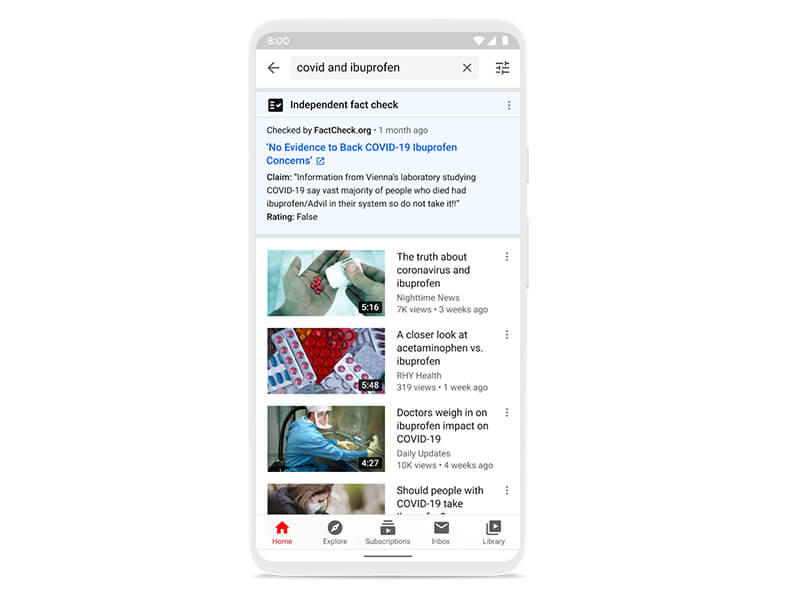YouTube starts displaying fact checks in search results in the US
YouTube fact check panels rolled out last year in India and Brazil, and now YouTube is expanding this feature into the US. Currently, millions of people are turning to YouTube for accurate...

YouTube fact check panels rolled out last year in India and Brazil, and now YouTube is expanding this feature into the US. Currently, millions of people are turning to YouTube for accurate information, and having the fact check will be handy.
“Over the past several years, we’ve seen more and more people coming to YouTube for news and information… More recently, the outbreak of COVID-19 and its spread around the world has reaffirmed how important it is for viewers to get accurate information during fast-moving events.”
The new panels will now be displayed when you search a fact-checked topic on YouTube. The panel can be found at the top of the screen, above the search results, you can get the information before clicking through to any of the videos.

This action will, without a doubt, have an effect on video views, but it will prevent YouTube users from being exposed to false and potentially harmful content.
The fact check panel lists all the information needed to help you make an informed decision. It provides you with information such as who conducted the fact check, when it was conducted, a link to the fact check results, and whether the claim is true or false.
Unfounded claims have become very common in recent weeks with all sorts of theories about COVID-19 circulating on the internet. YouTube’s aim with fact check panels is to address the problem of dealing with misinformation, which comes up as a part of the quick-start news cycle.
Not every time a fact check panel will appear, though. There should be a relevant fact check article that is available from a trusted publisher. Another factor is that the question searched by the user should be about a specific claim, not just a general topic. “For example, if someone searches for “did tornado hit Los Angeles,” they might see a relevant fact check article, but if they search for a general query like “tornado,” they may not.”
Fact check panels mainly depend on a network of third party publishers, plus leverage the ClaimReview structured data markup. Several US publishers are participating in fact-checking today, including The Washington Post Fact Checker, The Dispatch, PolitiFact, and Fact check.org.
Fact check panels in YouTube’s search results are an extension of its efforts to surface information from reputable sources.
YouTube pointed to information panels that were introduced in 2018 as an example of keeping its users informed about unfounded claims. Information panels contain links from Wikipedia and Encyclopedia Britannica for topics that are prone to misinformation, for example, flat earth theories.
Fact check panels have already rolled out in the US, and YouTube is planning to expand the same in other countries.















